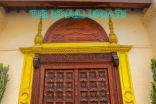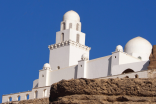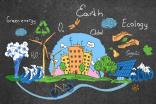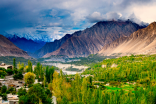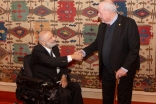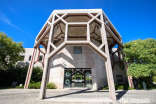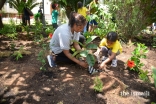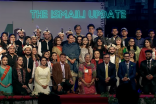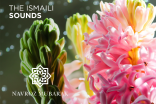Content Tagged with app
Episode 2 of The Ismaili Update includes exclusive coverage of the inauguration of the Aga Khan Polyclinic in Stone Town Zanzibar. Features scenes include the opening ceremony of the ultra-modern health clinic along with speeches from Princess Zahra and First Lady of Zanzibar, Her Excellency Mariam Mwinyi.
Join us from the beautiful island of Zanzibar, ahead of the special event tomorrow to inaugurate the Aga Khan Polyclinic. In this episode, host Shamya Jaffer walks through the narrow streets of Stone Town with Dr Farouk Topan, who shares the story of the city’s Old Dispensary and recounts the history of the Jamat in this part of the world.
Whether you are a student of Islamic history, a lover of art and culture, or simply curious about the remarkable Fatimid period, the latest IIS book launch is not to be missed.
Through the millennia of human existence, the Earth’s climate has shifted gradually from ice ages to warm periods due to natural cycles. So why are we so concerned about the changing climate now?
Last May, record temperatures provoked a glacial lake outburst flood (GLOF) in northern Pakistan, sweeping away bridges and villages in the valley below the Shishper glacier. Higher up the mountains, the semi-nomadic Wakhi were leading their yaks to summer pastures. Their traditional lifestyle has been heavily impacted by climate change. Season 2, Episode 9 of Voices from the Roof of the World, entitled “Cry from the Mountains” explores GLOFs and their effects in northern Pakistan.
On the occasion of Laylat al-Qadr, The Ismaili is pleased to present a rendition of the Hamd Allah Hu, performed by Fitoor. Originally popularised by Qari Waheed Zafar Qasmi, this devotional composition in Arabic and Urdu expresses reverence and admiration for Allah and Prophet Muhammad (peace be upon him and his family).
In an exclusive interview with The Ismaili TV, Dr Gijs Walraven, AKDN’s Director for Health, recounts the history of the Aga Khan Health Services (AKHS) and explains how its principles are put into practice.
How can professionals remain relevant in today’s fast-paced and competitive job market? What should business-owners do to stay ahead of the field? The latest episode of Navigating Today’s Economy sheds light on these issues and more.
On 4 March, at the Ismaili Centre Vancouver, two strangers came together to share a special moment — 50 years after first crossing paths during a milestone event in both of their lives.
28 March 2023: At around 11.30 AM today, a man armed with a knife entered the premises of the Ismaili Centre in Lisbon and attacked three people, killing two and injuring the third. The police and security services immediately responded, and the attacker has been taken into custody.
The increased cost of energy and the use of fossil fuels are creating increasing financial and health impacts on households and businesses. This is due to the increasing demand for and the limited supply of energy sources, as well as the use of carbon-based fuels to generate energy. This can lead not only to an increase in prices of goods and services but also effects on mental and physical health.
As part of their pledge to be climate champions, the Aga Khan Scouts and Guides in Dar es Salaam, Tanzania, planted a micro-forest at Upanga Jamatkhana last month in collaboration with Ismaili CIVIC and the Aga Khan Foundation (AKF).
Pakistan Day, celebrated on 23 March, saw four outstanding individuals receive prestigious awards from the President of Pakistan, Dr Arif Alvi. These included the Hilal-e-Imtiaz, Sitara-e-Imtiaz, Tamgha-e-Imtiaz, and the President’s Award for Pride of Performance. The recipients were recognised for significant contributions to their respective fields, to the national interests of Pakistan, or to world peace, cultural, and other significant public endeavours.
In a special interview for The Ismaili TV, Michael Kocher, General Manager of the Aga Khan Foundation (AKF) speaks about the complex and multigenerational issues of poverty and lack of inclusivity. He shares examples of the work AKF is doing in 18 countries to improve the quality of life in an equitable and sustainable way.
Over the past year, many of us have been impacted by inflation, stagflation, and even shrinkflation. What do these terms mean, and how can we mitigate risks posed by the current economic environment? A new series on The Ismaili TV aims to address these very questions.
Join us from Karachi for the fourth and final instalment of The Ismaili Update: AKU40. Episode four includes more highlights of Princess Zahra’s visit to Karachi, during which she toured AKU’s facilities and new projects, took part in a cutting-edge research presentation, and attended a student talent showcase.
As we celebrate the festival of Navroz, The Ismaili is pleased to share a photo of Mawlana Hazar Imam with his grandsons Prince Irfan, aged seven, and Prince Sinan, aged six, taken recently at his Lisbon residence.
In 2024, talented artists and athletes from more than 30 countries will converge, compete, perform and exhibit on the world stage. The Global Encounters Festival, an initiative of the new Global Encounters institution, will bring together the Jubilee Arts and Jubilee Games in one location.
The Ismaili is pleased to present Musarrat e Navroz performed by Taufiq Karmali. The song’s lyrics offer felicitations on the joyous occasion of Navroz — the first day of spring and the start of a new year.
In nature, the concept of waste does not exist. Ecological systems are designed with perfect circular processes where resources flow in a waste-free, sustainable loop. On the contrary, human-designed systems use linear processes where resources are extracted, processed, briefly used, and then discarded. How can we replicate the ideal circular systems found in nature?



